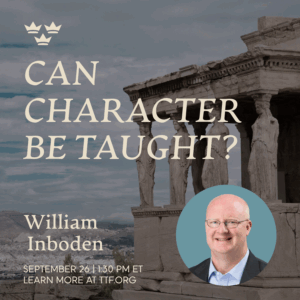The most recent example is his campaign's effort to distance Obama from comments he made last July. When asked if he would be willing to meet with the
leaders of Iran, Syria, Venezuela, Cuba, and North Korea “without precondition” during the first year of his administration, Obama famously answered, “I would.” It's a commitment he repeated throughout the Democratic primary.This explanation is Clintonian. As Robert Novak helpfully pointed out in his column on Thursday, last September Obama was asked at a press conference whether he still would meet with Ahmadinejad. Obama replied, “Yeah . . . I find many of President Ahmadinejad's statements odious. . . . But we should never fear to negotiate.” And in November, on NBC's Meet the Press, Obama defended “a conversation with somebody like Ahmadinejad.”
Rather than admit he made a mistake, however, Obama now blames us for our “obsession” with Ahmadinejad. And as is so often the case, any criticism of Obama, on any grounds, is causing us to “lose track of what's important.” One senses that Obama and his supporters, while happy to pound his opponents, believe criticism of him is indecorous and even illegitimate.
There is yet more in the Obama oeuvre of old politics.
![]() In October 2007, Obama and not his critics made the American flag pin on his lapel an issue by saying it had become a “substitute” for “true patriotism.” He proudly declared, “I won't wear that pin on my chest.” That pledge has apparently become inoperative. Obama has been wearing the American flag pin on his lapel at campaign events. Apparently it's no longer a substitute for “true patriotism.”
In October 2007, Obama and not his critics made the American flag pin on his lapel an issue by saying it had become a “substitute” for “true patriotism.” He proudly declared, “I won't wear that pin on my chest.” That pledge has apparently become inoperative. Obama has been wearing the American flag pin on his lapel at campaign events. Apparently it's no longer a substitute for “true patriotism.”
![]()
![]() Senator Obama has claimed as president he'll be able to rise above partisan politics — yet he has done very little to work with Republicans on major, controversial issues. Obama is not only the most liberal person in the Senate but also one of the most reliable Democratic votes. He has voted against such outstanding Supreme Court nominees as John Roberts and Samuel Alito. No person who is serious about acting in a “post-partisan” manner would have cast those votes or acted the way Obama has during his Senate career.
Senator Obama has claimed as president he'll be able to rise above partisan politics — yet he has done very little to work with Republicans on major, controversial issues. Obama is not only the most liberal person in the Senate but also one of the most reliable Democratic votes. He has voted against such outstanding Supreme Court nominees as John Roberts and Samuel Alito. No person who is serious about acting in a “post-partisan” manner would have cast those votes or acted the way Obama has during his Senate career.
![]()
According to the Chicago Sun-Times, in June 2005 Obama and Rezko purchased adjoining parcels. Obama paid $1.65 million for a home while Rezko paid $625,000 for the adjacent, undeveloped lot. Both closed on their properties on the same day (the Obama's were able to purchase their parcel for $300,000 less than the asking price while Rita Rezko, the wife of Tony Rezko, paid the full price). And in January 2006, Obama paid Rezko $104,500 for portions of his land. The transaction occurred at a time when it was widely known that Rezko was under investigation. And according to ABC News, Rezko
contributed more than $120,000 to Obama's 2004 Senate campaign — much of it at a time when Rezko was the target of an FBI investigation. “It surprised me that late in the game [Obama] continued to take contributions from somebody who was under a rather dark cloud in the state,” according to Cynthia Canary of the Illinois Campaign for Political Reform, a group that has worked closely with Obama and supported his legislative efforts.* * * *
Is Barack Obama's record on these matters unprecedented for a politician? No. Has he acted in ways that are dishonorable or that call into question his basic integrity? Not in my judgment. But they matter because they go to the core of his campaign, which is to present Obama as a figure who is different, and better, than those who have come before him. He is a man who will bring “change” to Washington, cast aside the “old politics,” and heal deep divisions. We are led to believe that he is a transcendent figure, more high-minded and unstained than, well, just about anyone in American politics.
But reality is now shattering the myth. Obama turns out to be a Chicago politician — highly ambitious, extremely talented, and neither untainted nor uncompromised. Maybe it's time for the national media, many of whom (like Newsweek and MSNBC, for starters) are enraptured by Obama, to acquaint themselves with the real man. Is that too much to ask when selecting our next president?
— Peter Wehner, former deputy assistant to the president, is a senior fellow at the Ethics and Public Policy Center.

